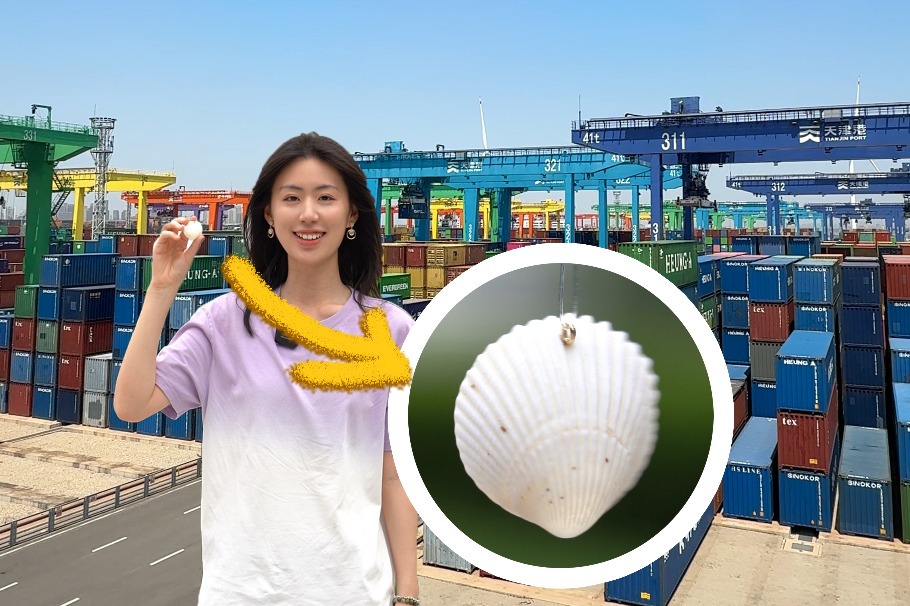Consumption's commission


Given the current global situation China must focus on stabilizing the basic functions of foreign trade for the Chinese economy
Not unexpectedly, given the overlap between the Spring Festival holiday and novel coronavirus epidemic, China has witnessed a sharp drop in foreign trade volume from January to February. But will its foreign trade revive now that it has basically contained the epidemic at home and its social and economic activities are gradually returning to normal?
Compared with China, Western countries have much weaker mobilization and coordination capabilities at the national level, thus they face the risks of longer economic stagnation. Moreover, Western countries are more reliant on service industries which have greater staff mobility. As a result, they will face heavier impacts from the pandemic.
The shrinking foreign trade arises from two different household spending problems. The first problem is the reduction in the purchasing power of households due to the loss of employment opportunities and incomes amid a stagnant economy. The second one is that the spending power of households cannot turn into real purchasing behavior due to the blocked flow of people and the isolation of communities.
While the first problem might be partially eased by economic policies, the second problem cannot be solved in this way. Therefore, the reduction in foreign trade is inevitable and it is not reasonable to pursue growth in foreign trade at any cost.
With China's export volume reduced due to diminished external demand, the portion of imports for use in exports have also dropped. China's epidemic containment efforts are still at a critical stage, and it is hard for the economy to fully recover from the impact of the epidemic in a short term. As a key part of the world economy, China will bear heavy downward pressure due to the recession of global economy. So, it is not necessary to pursue growth in imports either.
Foreign trade is influenced by multiple factors. The recovery of China's domestic economy is not able to drive the simultaneous recovery of foreign trade. In this context, the target of policymakers has turned from stabilizing foreign trade to stabilizing the fundamentals of foreign trade. Under this guideline, what is important is not to pursue the growth of foreign trade, but to stabilize the basic functions foreign trade performs for the Chinese economy.
As the principal contradiction facing the Chinese economy has switched from the lack of aggregate demand to the structural imbalance between aggregate supply and demand, the macroeconomy has become much less reliant on foreign demand. Foreign trade increasingly plays a more basic role in the economy, such as promoting the cycle from input to output, driving economic growth, creating jobs and raising living standards.
In terms of exports, differentiated policies should be introduced to support export enterprises facing different problems. There are four types of problems that need to be solved.
First, some export enterprises face difficulties in resuming business and production. China has taken measures in response to their problems.
Second, some export enterprises can resume their operations but lack foreign purchasing demand and financial support. Their problems can be resolved by raising export tax refunds and bolstering credit support.
Third, the pandemic has disrupted international logistic services. To solve this problem, China should strengthen coordination with other countries on implementing containment policies and restore international logistic services.
Fourth, supply sources have been cut off due to the pandemic. To address this problem, China should roll out policies to resume and expand domestic supply capacity, helping domestic enterprises to seize market share.
It should be noted that these measures are aimed at solving basic problems facing foreign trade in response to changing domestic supply and external demand, not at stimulating exports. The demand from foreign markets will keep declining, the effects of which can't be counteracted by domestic policies. If stimulus policies are carried out to fuel exports, they might lead to severe overcapacity in the future.
China should rely more on growth in domestic demand to mitigate the impact from decreasing external demand. With the support of economic and social policies in multiple aspects, China's domestic demand has great potential for growth. However, its potential cannot be realized without the support of exports. About 6 percent of the intermediate products and investment products of China are imported from overseas. That may seem a small portion, but with no domestic substitutes for these products, it will hamper the expansion of investment and production.
The restoration of global transport is urgently needed to stabilize import channels and sources, which requires coordination among countries around the world. China has some advantages at hand in coordinating policies with other countries, such as its experience in pandemic prevention and control, robust production capacity for medical supplies, as well as the recovery of domestic consumption market. For instance, China can coordinate with Japan and the Republic of Korea, two key suppliers to China, in anti-pandemic and economic recovery policies to resume cross-border transport and logistics.
In a word, China should aim to preserve the basic functions of foreign trade, rather than pursuing growth. At home, it should stabilize import channels and sources to offset weakened domestic supply and shore up growth of domestic demand.
Stabilizing export channels and markets will help domestic enterprises to survive the pandemic. Also, China should remove the blockage in global trade channels to decrease the risk of a complete halting of global production and value chain and help preserve China's status in global value chain, thus pushing for the orderly resumption of the Chinese economy.
The author is a researcher at the National Academy of Development and Strategy at Renmin University of China. The author contributed this article to China Watch, a think tank powered by China Daily. The views do not necessarily reflect those of China Daily.

































